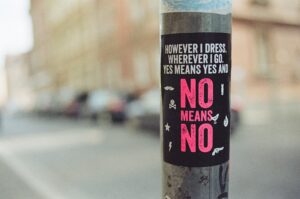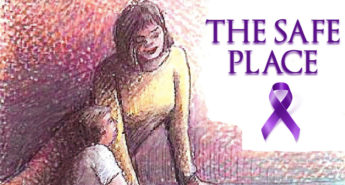 April is an important time of the year because it’s Sexual Assault Prevention Month. It’s a time when communities all over the world come together to talk about something that’s difficult but necessary: sexual assault. Sexual assault is when someone forces or coerces another person into sexual activity without their consent. It’s a serious issue that affects people of all ages, genders, races, and backgrounds.
April is an important time of the year because it’s Sexual Assault Prevention Month. It’s a time when communities all over the world come together to talk about something that’s difficult but necessary: sexual assault. Sexual assault is when someone forces or coerces another person into sexual activity without their consent. It’s a serious issue that affects people of all ages, genders, races, and backgrounds.
One of the main reasons we have Sexual Assault Awareness Month is to bring attention to this issue and to support survivors. Survivors are the people who have experienced sexual assault. It’s important for them to know that they’re not alone and that there are people and organizations ready to help them.
During this month, many events and activities take place to raise awareness about sexual assault. Schools might have presentations or workshops about consent and healthy relationships. Community centers might host self-defense classes or discussions about how to support survivors. These activities help spread important information and encourage conversations about how to prevent sexual assault and support those who have experienced it.
One of the key messages of Sexual Assault Awareness Month is the importance of consent. Consent means that all people involved in a sexual activity freely agree to participate. It’s not just about saying “no” when you don’t want to do something—it’s about actively saying “yes” when you do. Consent must be given freely and enthusiastically, and it can be taken back at ANY time. Do not forget that “No” is a complete sentence, once someone has been told “no” if they continue trying to convince you this is coercion. Understanding and respecting consent is crucial in preventing sexual assault.
Another important part of Sexual Assault Awareness Month is challenging harmful attitudes and beliefs that contribute to a culture where sexual assault can happen. These attitudes might include victim-blaming, where people blame the survivor instead of the perpetrator, or the idea that certain people “deserve” to be assaulted because of what they were wearing or how much they had to drink. These harmful beliefs can make it harder for survivors to come forward and seek help.
It’s also essential to recognize that sexual assault affects everyone differently. Some survivors might want to talk about their experiences, while others might not feel ready or comfortable to do so. It’s important to respect each person’s individual journey and to offer support and resources without pressure.
As Sexual Assault Awareness Month continues, it’s crucial to remember that the conversation doesn’t stop here. We must continue to work year-round to prevent sexual assault, support survivors, and create a culture of consent and respect. By standing together and raising our voices, we can create a world where everyone can live free from the fear of sexual violence.




Leave a Reply